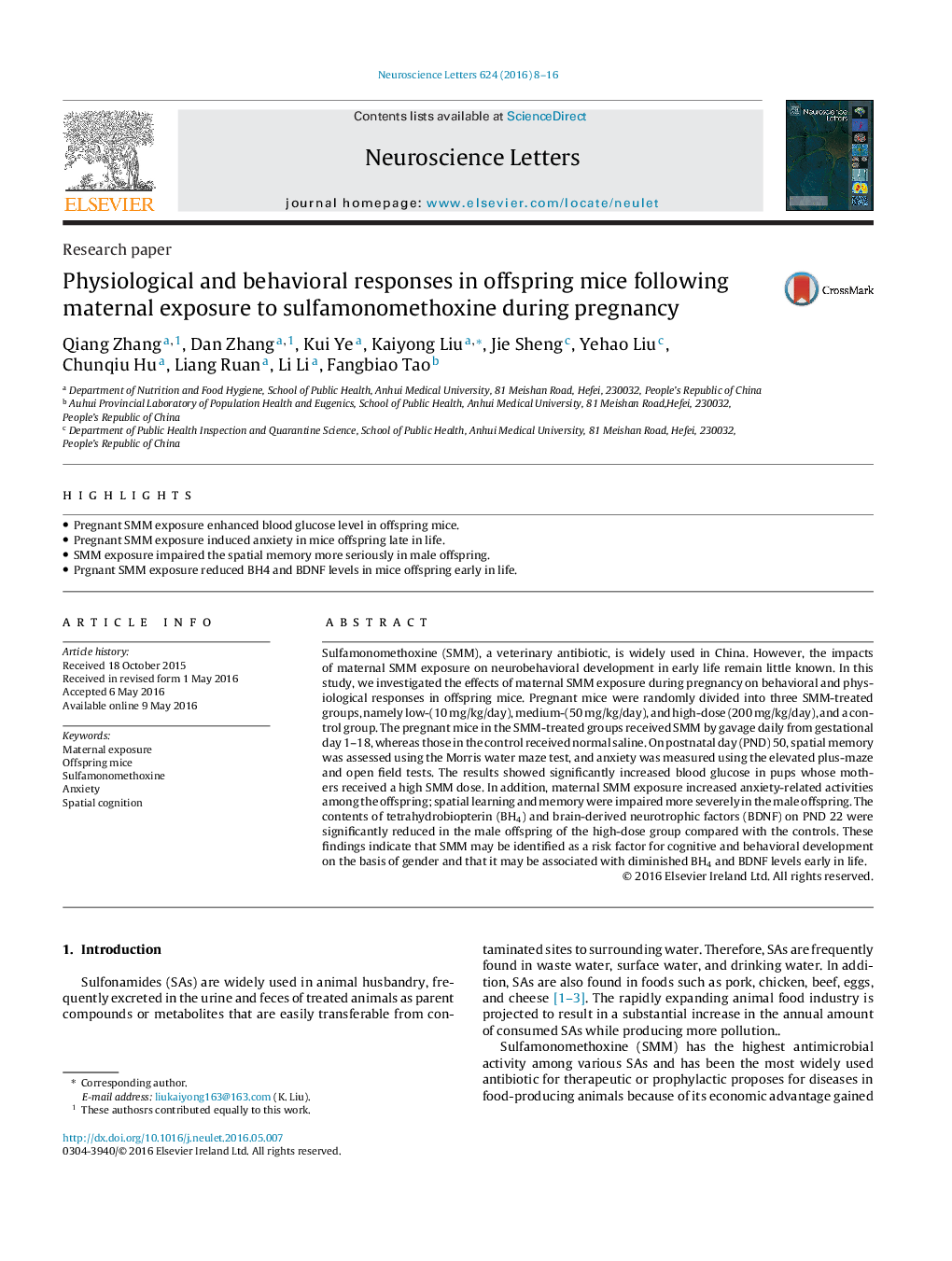| Article ID | Journal | Published Year | Pages | File Type |
|---|---|---|---|---|
| 6279314 | Neuroscience Letters | 2016 | 9 Pages |
Abstract
Sulfamonomethoxine (SMM), a veterinary antibiotic, is widely used in China. However, the impacts of maternal SMM exposure on neurobehavioral development in early life remain little known. In this study, we investigated the effects of maternal SMM exposure during pregnancy on behavioral and physiological responses in offspring mice. Pregnant mice were randomly divided into three SMM-treated groups, namely low-(10Â mg/kg/day), medium-(50Â mg/kg/day), and high-dose (200Â mg/kg/day), and a control group. The pregnant mice in the SMM-treated groups received SMM by gavage daily from gestational day 1-18, whereas those in the control received normal saline. On postnatal day (PND) 50, spatial memory was assessed using the Morris water maze test, and anxiety was measured using the elevated plus-maze and open field tests. The results showed significantly increased blood glucose in pups whose mothers received a high SMM dose. In addition, maternal SMM exposure increased anxiety-related activities among the offspring; spatial learning and memory were impaired more severely in the male offspring. The contents of tetrahydrobiopterin (BH4) and brain-derived neurotrophic factors (BDNF) on PND 22 were significantly reduced in the male offspring of the high-dose group compared with the controls. These findings indicate that SMM may be identified as a risk factor for cognitive and behavioral development on the basis of gender and that it may be associated with diminished BH4 and BDNF levels early in life.
Related Topics
Life Sciences
Neuroscience
Neuroscience (General)
Authors
Qiang Zhang, Dan Zhang, Kui Ye, Kaiyong Liu, Jie Sheng, Yehao Liu, Chunqiu Hu, Liang Ruan, Li Li, Fangbiao Tao,
